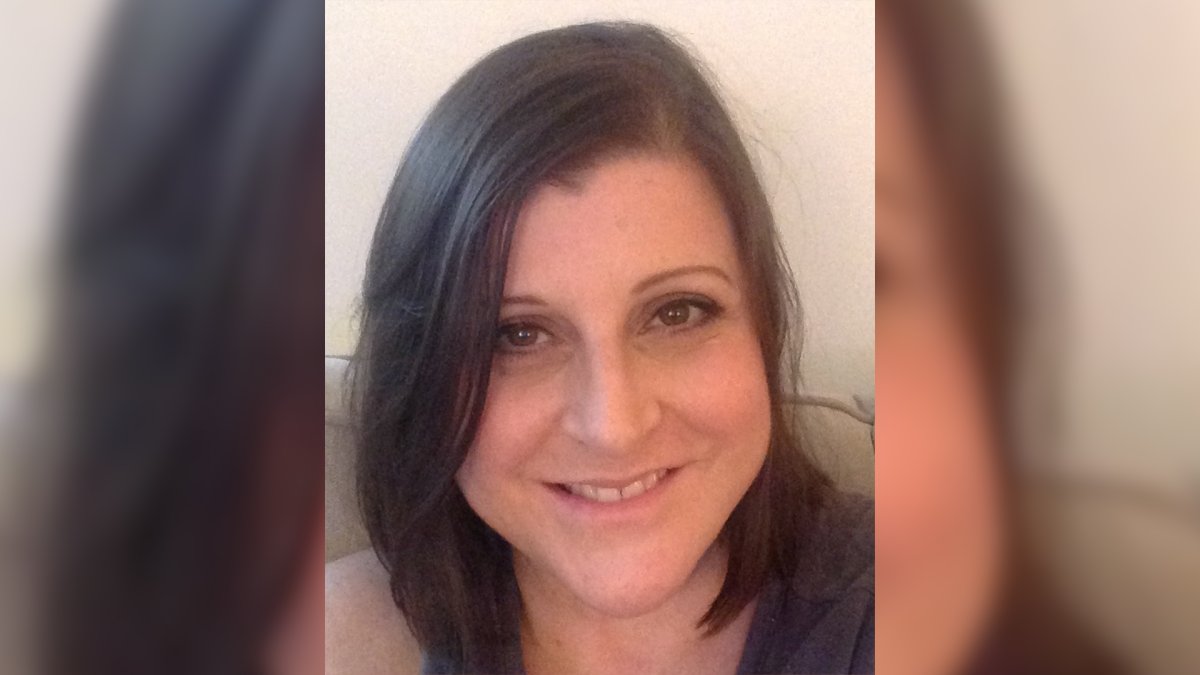Tracey Starr is a Canadian editor and writer, but first and foremost, she’s a mom to her five-year-old daughter. Starr is also a parent who suffers from depression and anxiety, and chooses to openly share with her daughter what she’s going through.

To Starr, her mental illness is something she lives with every day. She told Global News in a telephone interview that she first suffered from depression as a teenager in high school and was diagnosed with anxiety in her 30s.
“I put on a brave face every day since I could remember,” said Starr. “If I were to walk around crying or have a panic attack — those aren’t things that are well accepted or understood… a lot of people don’t even know, or wouldn’t even know, that I suffer depression or anxiety.”
According to the Canadian Mental Health Association (CMHA), 20 per cent of Canadians will experience some sort of mental illness in their lifetime.
In a recent Ipsos poll, 41 per cent of Canadians born between the years of 1961 to 1981, also known as Generation X, are at “high risk” when it comes to their mental health, while 24 per cent of Baby Boomers — those born between the years of 1946 to 1964 — are at high risk.
Depression and anxiety are also things that Starr talks to her daughter about, in order to not only be honest and open with her, but most importantly, to create a dialogue when it comes to mental illness.
“If she sees me sad, she’ll ask why I’m crying,” said Starr. “And I’ll say, ‘Sometimes it’s hard for mommy to relax and put a smile on my face but I’m doing my best like I ask for you to do your best.’”
Starr also said when she talks to her five-year-old about her mental illness, she doesn’t use the word “depression” to explain what she has.
“It’s not that I don’t want to or that I’m afraid. It’s not about shame because I never ever want her to feel shame about anything. It’s more about saying it in a narrative that she’ll understand so she won’t feel frightened.”
This method Starr chooses to use to talk to her daughter about anxiety and depression is one doctors agree is the best way for parents to approach their children about the situation.
READ MORE: Toronto woman opens home as Mental Wellness Loft
Dr. Jillian Roberts, a registered psychologist who specializes in children and adolescents, said the age of the child and their circumstances should play a big factor into how parents tell their child what they’re going through.
- Budget 2024 failed to spark ‘political reboot’ for Liberals, polling suggests
- Train goes up in flames while rolling through London, Ont. Here’s what we know
- Peel police chief met Sri Lankan officer a court says ‘participated’ in torture
- Wrong remains sent to ‘exhausted’ Canadian family after death on Cuba vacation
“A mature child who doesn’t have any major stresses could handle more information than a child who is slow to develop when it comes to maturity, or going through a crisis of their own,” said Roberts.
Roberts also says that the younger the child is, the less a parent should share. For example, a child who is in preschool or younger, wouldn’t often need to know the condition the parent is going through.
“This is a time to shelter stress, as much as possible, from your child. Parents must seek treatment and surround themselves with as much support as they possibly can,” said Roberts.
Whereas, if your child is in the middle of elementary school, they could handle a bit more information.
“You could explain that you do not ‘feel well in your mind’ or ‘in your heart.’ It will still be very important to reassure your children, stress that this is not their fault in any whatsoever, and explain that you are getting the best help available.”
Reassuring her child, said Starr, is something she does.
“I say, ‘Mommy loves you, mommy is fine. Mommy just needs a moment but everything will be ok,” said Starr. “I say that to make sure she knows everything will be ok; I need to be her example. I don’t want to frighten her — I want to educate her.”
Dr. Shimi Kang, an adult and youth psychiatrist as well as a parenting author, said using an analogy of a physical illness is also another great method to explain to children about mental illness.
For example, you could tell your child that Johnny’s asthma gets worse in the wintertime, just like how mommy and/or daddy feels better or worse during certain circumstances.
READ MORE: Eating disorders awareness week looks to destigmatize the mental illness
“Kids are very in tune with their parents,” said Kang to Global News. “With older kids, they may see something is wrong and have concerns. Give children some power and talk about what they’ve noticed themselves.
Kang also said it’s very important for parents to try and be confident in themselves.
“You’re the parent: it’s your job to teach your kids. If they don’t understand, don’t take it personally. Just teach them. Just like math — teach them about it.”
Dr. Oren Amitay, a Toronto-based registered psychologist, said another way to talk to your children is by using celebrities — someone kids may idolize or look up to.
“You could say, ‘So and so’ had it as well. Show them powerful people have it as well.”
Amitay also said it’s a great way for parents to be a role model to their children.
“This is a great life lesson: when you’re knocked down, show them you’re going to get back up somehow,” said Amitay. “Too many parents try to shield it. But kids internalize most things. If mommy can’t get out of bed, or daddy doesn’t smile, then the kids are going to say, ‘What’s wrong with me?’”
Amitay stressed it’s important for parents to remind their child that mental illness isn’t happening because of them.
“Reassure the child so they don’t take it upon themselves.”
In all cases, Roberts, Kang and Amitay spoke about mental illness being just as important as a physical illness, and that parents should seek support, whether from family, friends or their community, about what they’re dealing with in order to get the help they need, and to de-stigmatize mental illness.
“There needs to be more medical services,” said Roberts. “There’s a long wait list to see a specialist and sometimes, parents might be in a crisis — they can’t wait eight months to see someone.”
READ MORE: Ontario youth with mental illness waiting months for help, auditor general finds
Starr said her advice to parents is just taking it one day at a time.
“I know it sounds silly but I always say, ‘Take baby steps. Be kind and gentle with yourself,’” said Starr. “I make sure my daughter is safe, happy, loved and surrounded by positivity and happiness. She’s my priority.”
——————————————————————————————————————————————
Where to get help
If you or someone you know is in crisis and needs help, resources are available. In case of an emergency, please call 911 for immediate help.
The Canadian Association for Suicide Prevention, Depression Hurts and Kids Help Phone 1-800-668-6868 all offer ways of getting help if you, or someone you know, may be suffering from mental health issues.







Comments